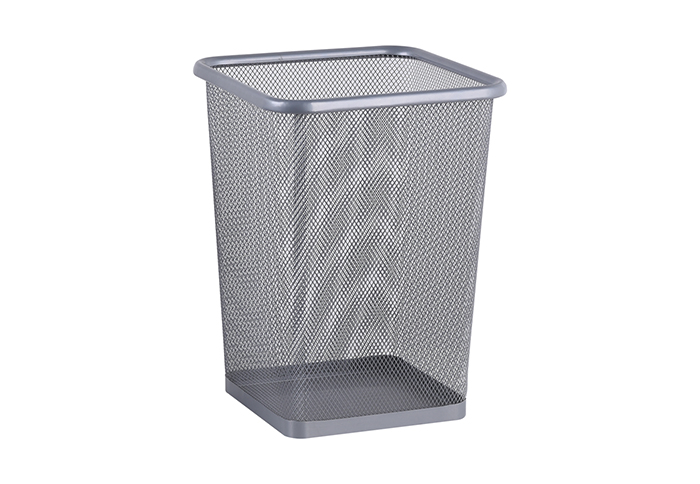Advantages of waste basket?
In the tapestry of everyday living, Waste Baskets stand as unsung heroes, quietly managing the ebb and flow of discarded items in homes, offices, and public spaces. These unassuming receptacles play a vital role in maintaining cleanliness, organization, and overall well-being. This comprehensive guide delves into the multifaceted advantages of Waste Baskets, shedding light on their impact on hygiene, convenience, and the promotion of responsible waste disposal habits. Learn more about What is a Waste Basket?

Advantages of Waste Baskets:
-
Localized Waste Collection: The primary advantage of waste baskets lies in their ability to provide localized waste collection points. Placed strategically in key areas such as bedrooms, offices, and bathrooms, waste baskets offer a convenient and accessible solution for the disposal of small, everyday items.
-
Convenience and Accessibility: Waste baskets enhance convenience by providing an easily accessible receptacle for disposing of everyday items like tissues, wrappers, and other small waste items. Their proximity encourages individuals to discard items responsibly, minimizing clutter and maintaining a tidy living or working space.
-
Hygiene Maintenance: Waste baskets contribute significantly to the maintenance of hygiene. By providing a designated space for waste disposal, they help contain and control potential messes. Liners or bags used within waste baskets simplify the process of emptying and cleaning, ensuring a more sanitary environment.
-
Organization and Orderliness: Waste baskets play a key role in fostering organization and orderliness. Placed strategically in different rooms, they prevent the accumulation of waste in inappropriate areas. This promotes a clutter-free environment, contributing to a sense of order and cleanliness.
-
Space Optimization: Waste baskets come in various sizes and shapes, making them adaptable to different spaces. Whether in a compact bathroom or a spacious office, waste baskets can be selected to optimize available space while accommodating varying waste disposal needs.
-
Prevention of Littering: The presence of waste baskets significantly reduces the likelihood of littering. When individuals have easy access to a designated bin, they are more inclined to dispose of waste properly, contributing to a cleaner and more visually appealing surroundings.
-
Odor Control: Waste baskets, especially those equipped with lids or liners, contribute to odor control. By containing waste within a closed space, they help prevent unpleasant smells from permeating the surrounding environment. This is particularly beneficial in confined spaces such as bathrooms.
-
Promotion of Responsible Disposal Habits: Waste baskets play a crucial role in shaping responsible waste disposal habits. By placing bins in visible and accessible locations, individuals are prompted to dispose of waste properly, contributing to a culture of responsibility and cleanliness in both residential and commercial settings.
-
Customization and Aesthetics: Waste baskets come in a variety of designs, materials, and colors, allowing users to customize them to match their interior decor. This not only adds a touch of aesthetics to a space but also ensures that waste bins seamlessly blend into the overall design scheme.
-
Ease of Emptying and Maintenance: The design of waste baskets prioritizes ease of emptying and maintenance. Removable liners or bags simplify the process of discarding waste and cleaning the bin itself. This user-friendly feature ensures that waste baskets remain a practical and efficient solution.
-
Adaptability to Various Environments: Waste baskets are versatile and can adapt to various environments. From bedrooms to kitchens, offices to public spaces, waste baskets serve as indispensable tools for waste management, providing a consistent and adaptable solution.
-
Education and Awareness: Waste baskets serve an educational purpose by raising awareness about waste disposal. Visible bins in public spaces and workplaces encourage individuals to be mindful of their waste and actively participate in maintaining a clean and organized environment.
-
Indoor Air Quality Improvement: By containing waste within a closed space, waste baskets contribute to improved indoor air quality. This is particularly relevant in spaces where food waste or other potentially odorous materials are disposed of, such as kitchens and offices.
-
Integration into Recycling Practices: Waste baskets can be incorporated into broader recycling practices. Some bins come with multiple compartments or color-coded sections, making it easy for users to separate recyclables from general waste and contribute to sustainable waste management practices.
-
Cost-Effective Waste Management: Waste baskets offer a cost-effective waste management solution. Their affordability, coupled with their ability to prevent littering and maintain cleanliness, makes them an economical choice for both households and businesses.
Conclusion:
In the intricate dance of daily life, waste baskets emerge as silent custodians of cleanliness and order. Their advantages extend beyond mere waste containment, influencing hygiene, convenience, and the cultivation of responsible disposal habits. As individuals and businesses navigate the intricacies of waste management, waste baskets remain steadfast allies, embodying the simplicity and practicality of a tool that, while often overlooked, plays a pivotal role in creating harmonious and well-maintained living and working spaces.
